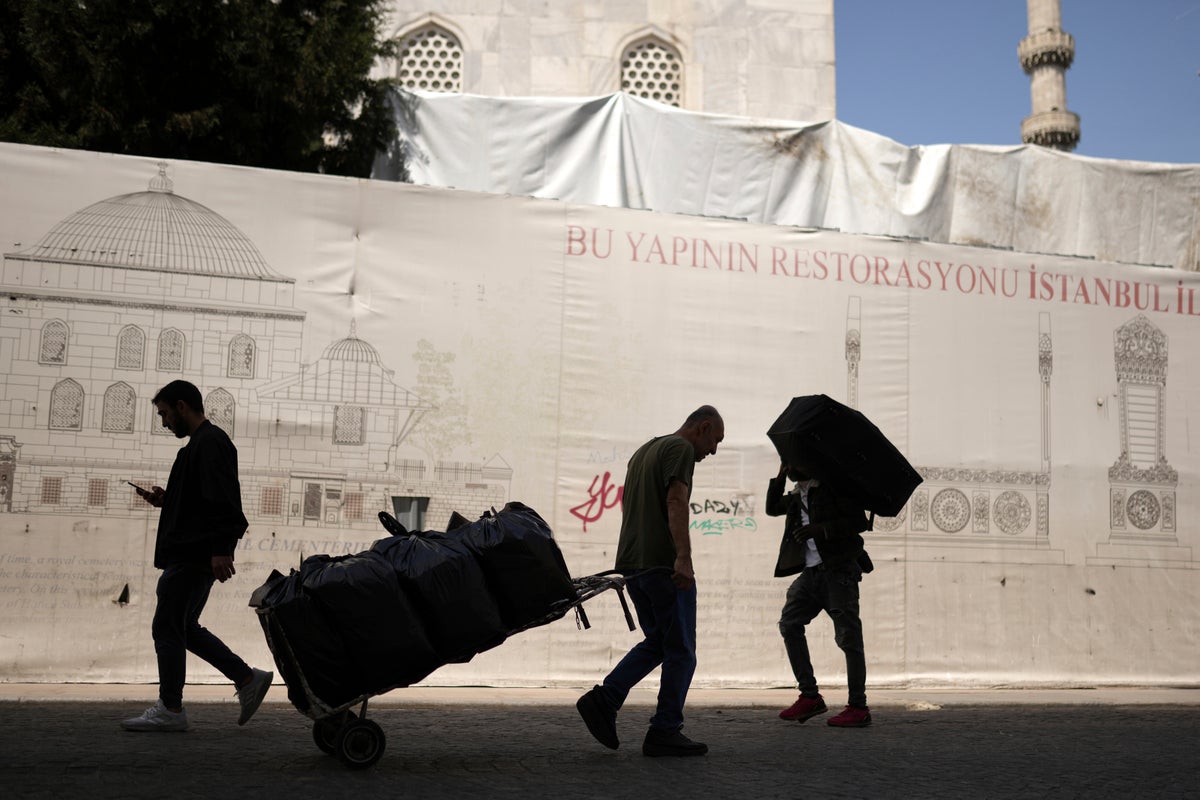
Turkey’s central bank raised its key interest rate by 3.5 percentage points on Thursday, halting a three‑month easing streak as it confronts stubborn inflation, financial turbulence following the arrest of Istanbul’s mayor and aftershocks of global tariffs.
The Monetary Policy Committee lifted the benchmark one‑week repo rate to 46% from 42.5% and pushed the overnight lending and borrowing rates to 49% and 44.5%, respectively.
The committee said the “tight monetary policy stance will be maintained until a permanent decrease in inflation and price stability are achieved.”
“The main trend in inflation declined in March,” the committee noted, but warned that core goods inflation is likely to rise slightly in April “due to developments in financial markets,” while services inflation should remain flat.
It added that growing protectionism in global trade, referring to the aftermath of global retaliatory tariffs, could undercut Turkey’s disinflation path by affecting commodity prices and capital flows.
Iris Cibre, a financial markets expert, called the decision “very positive” for the bank’s credibility, which experts criticized in the past for being open to political interventions in its decision making.
“There were some comments that such a thing would not be allowed politically. The Central Bank has refuted these comments. This is very positive in terms of the credibility of the Central Bank.”
Cibre said the hike showed policymakers can act “more freely politically,” even though Turkey’s President Recep Tayyip Erdogan has long favored lower borrowing costs. “We all know that politics is in favor of lowering interest rates,” she said but warned of further financial risks due to limited credits,
“There is a 5% credit growth limit. So, it will continue to create serious problems for companies. This will increase unemployment, and it seems like the economy will slow down for longer than expected.”
Cibre noted that U.S. Federal Reserve officials have hinted they will wait to see the full impact of recently announced retaliatory tariffs between the U.S and other countries before adjusting rates. “That’s exactly what our Central Bank emphasizes,” she said.
High inflation in Turkey has been attributed to a combination of factors, including rising energy prices, the economic fallout from the COVID-19 pandemic, and Erdogan’s past unconventional economic policy of lowering interest rates despite soaring inflation.
Erdogan has long argued that high interest rates cause inflation — a theory that runs against mainstream economic theory.
In 2023, Erdogan appointed a new economic team, signaling a shift away from his previous unorthodox policies. The team initially implemented a series of interest rate hikes to combat inflation. After maintaining the interest rate at 50% for several months, the bank had embarked on a gradual cycle of rate cuts until today.







